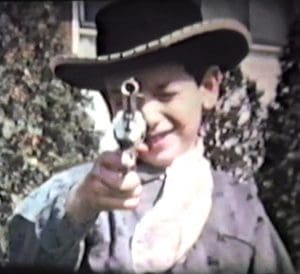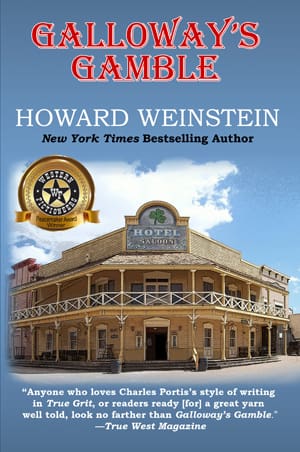Superheroes all have origin stories, right? So do writers’ publishing collectives. Crazy 8 Press was born outside the restrooms on the ballroom level of the Hunt Valley Inn hotel north of Baltimore, at a Shore Leave convention a little over a decade ago.

That’s the historic spot (nope, there’s no commemorative plaque there) where a half-dozen of us science fiction/fantasy writers frustrated over the state of Big Publishing decided, “Well, why the heck don’t we publish our own books and sell ‘em directly to readers?”
I was among that original group, but life being what it is, it’s taken me this long to actually present a book bearing the Crazy 8 logo. And it’s not science fiction—it’s a historical novel called Galloway’s Gamble.
I’m “best known” (if I’m known at all) for four decades of writing Star Trek stories. The original TV show inspired me to be a writer, and I was fortunate enough to sell “The Pirates of Orion” script to NBC’s animated Saturday morning revival in 1974 (as a 19-year-old college junior). I’d reached my goal of becoming a professional writer, and credits after that included many Star Trek novels, comics, and other science fiction.
As a 12-year-old kid in 1966, I was hooked by Star Trek’s optimistic view of the future, offering hope during the turbulent 1960s that humans could learn from mistakes and become better. 50+ years later, I’m no longer that optimist. Despite technological advances, it seems human behavior has actually regressed rather than improved. Examples: We’re further away from Middle East peace than ever. And those who disregard science in favor of heedless, headlong greed are ruining the only home planet we have.

So there I was, unable to write about an optimistic future I no longer believed in (and repelled by the bleak prospect of writing about a dystopian future). I had no idea what I wanted to write about.
That’s when I stumbled across the Encore Westerns cable TV channel. I’d grown up in the ‘50s watching westerns years before Star Trek. So I started re-watching old westerns I barely remembered from childhood, especially two of the best— Maverick and Have Gun Will Travel. And I found I still enjoyed westerns. (That’s me in cowboy gear, age 6.)
I’ve always been interested in history, both real and fictionalized. I love the PBS documentary series American Experience, and documentaries from director Ken Burns. If there’s a period drama on TV or in the movies, I’m there. So I thought: Why not tell stories set in the past? Instead of extrapolating about the unknowable, why not look back for clues about how we got from there to here?
And that’s how I landed on historical fiction. As I started my 19th century research, I was struck by how little people have changed in 150 years. That was both a little depressing, and a little exciting—historical fiction opened the door to commenting on life today by exploring the past. That could be both fascinating and fun.

Science fiction has to be plausible. Even fantasy has to make us believe that dragons, magic, or hobbits exist in a consistent “real” world. But historical fiction has to be accurate. Whatever time or place I write about, the details must be right—because somebody out there knows more about it than I do. If I’m wrong or fudge something, someone will catch me—and there goes my credibility, and my story.
Anyway, that’s how I ended up writing Galloway’s Gamble, published by plucky little Five Star Publishing in 2017—and winning a Western Fictioneers Peacemaker Award. Five Star asked for a sequel, which I’m working on now (unfortunately sidetracked by health problems and back surgery).
So when two sets of publishing rights—for paperback and ebook editions—reverted to me, Crazy 8 Press seemed like the right place to make sure Galloway’s Gamble is still available to readers. So here we are—with thanks to the Crazy 8 gang for putting out the welcome mat.
